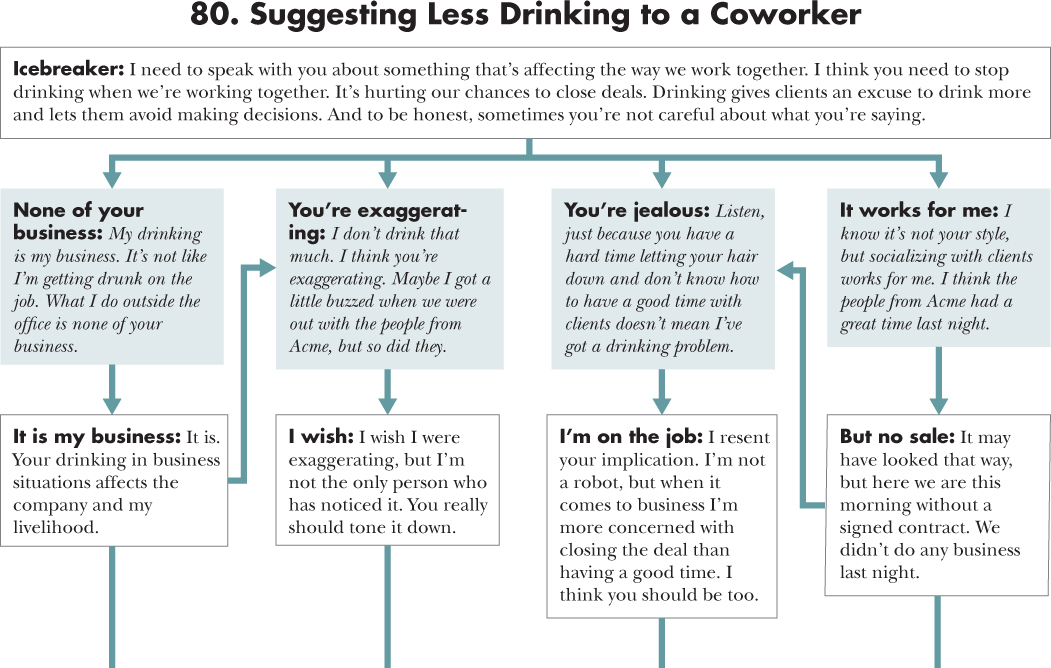80
Suggesting Less Drinking to a Coworker
STRATEGY
It's always awkward to discuss drinking habits with a colleague, but never more so than at a sales conference or in some other out‐of‐the‐office business/personal situation. Most large companies have established routines for identifying, warning, and assisting employees who show signs of chronic alcohol or drug abuse, but when a fellow sales rep blows a deal by getting drunk at a client dinner, there's no employee assistance program around to intervene. There's probably little you can do at the time, short of making a scene—and he has probably already taken care of that; so, your goal is to make sure it doesn't happen again. That means changing his behavior—at least in his business meetings with you.
TACTICS
- Attitude: Be direct, clear, and determined. You are doing this for their good, your good, and the company's good, so there's no reason for you to question your actions.
- Preparation: Expect efforts either to deny there's a problem or to shift the focus of the discussion from the issue of drinking. Consider “compromise solutions” short of abstinence.
- Timing: Do this as soon as possible after an incident where the problem was obvious. Breakfast the morning after a botched client dinner is fine—as long as they aren't too hung over.
- Behavior: Be compassionate but keep the focus on business. Your goal is to keep from being embarrassed in the future, and make sure their problem doesn't hurt your career.


ADAPTATIONS
This script can be modified to:
- Address any form of antisocial behavior by a business peer.
- Discuss the garb of a business peer.
KEY POINTS
- Be businesslike, determined, clear, and direct.
- If they say their drinking is none of your business, stress that when it happens in a work situation it is your business.
- If they say you're exaggerating, say other people have noticed too.
- If they say you're too uptight, say you're simply interested in getting your job done.
- If they blame the clients, suggest having meetings at non‐drinking times or places.
- If they accuse you of acting superior, just reiterate your stake in the situation.
..................Content has been hidden....................
You can't read the all page of ebook, please click here login for view all page.
